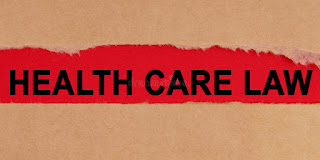The new Bill will lay the foundation for the launch of Catastrophic Care coverage, which is a priority for The Bahamas Government, according to The Minister of Health and Wellness, the Hon. Dr. Michael Darville
The best prescription to address the country’s complex health challenges is an affordable and robust primary health system that can mitigate many of our health challenges brought on by the impacts of poorly managed non-communicable diseases like hypertension, diabetes and cancers undiagnosed in the earlier stages of clinical presentation, said Dr. Darville.
Dr. Darville explained that the current legislation is no longer sufficient to meet the evolving needs of NHI and the increasingly complex financial landscape presently in the country.
“Over the past few years, with the ongoing COVID-19 pandemic, we have witnessed first-hand the importance of maintaining accessible primary care and the impacts of primary healthcare coverage on the overall health and well-being of our people.
“We have also seen the staggering financial impacts of acute care and the tremendous burden at our hospitals brought on by patients suffering from chronic non-communicable diseases.”
He said the best prescription to address the country’s complex health challenges is an affordable and robust primary health system that can mitigate many of our health challenges brought on by the impacts of poorly managed non-communicable diseases like hypertension, diabetes and cancers undiagnosed in the earlier stages of clinical presentation.
Dr. Darville said this universal challenge was brought to the forefront by the Pan American Health Organization 30th Sanitary Conference in Washington D.C . a few weeks ago, and confirmed at the recent Cuban Health Conference.
“For this reason, I am introducing the National Health Insurance Bill, 2022 which will modernize the NHIA’s legislation to meet the current realities of the Bahamian health system.”
He said, “This bold move will certainly bring together both public and private clinical practices under a common financing structure that rewards performance quality and service excellence.”
Dr. Darville said the new NHI Bill will lay the legal framework to roll out a suite of services known as the Standard Health Benefit, that all NHI beneficiaries will receive what is available now and much more. These services include: - Primary Health Care Services
- Health Education and Promotion
- Early Detection and Preventative Care
- Diagnostic Imaging
- Pediatric and Maternity Care
- Screening Programs for Cancer and Other Specified Conditions
He explained that the new Bill will lay the foundation for the launch of Catastrophic Care coverage, which is a priority for the administration.
The Health Minister said this piece of legislation will prove to be a critical step for the expansion of primary healthcare benefits along with robust health and wellness programs across the country as the government pushes toward universal health coverage.
He said through this proposed Bill, all private insurers that offer health insurance plans in the country will be required to offer the newly purposed Standard Health Benefit package as a minimum standard of coverage.
Dr. Darville said in this sense, NHIA will assume the role of the insurer of last resort and will protect the poorest and most under-served communities.
He also noted that in addition to introducing the Standard Health Benefit as the minimum standard for all health insurance plans in the country, this legislation will expand the network of providers to deliver services.
Dr. Darville said, “But let me reassure the general public that these providers will need to meet the Authority’s high-quality standards and they will not be a part of this entire process unless they prove to be in good standing with our medical licensing agencies.”


